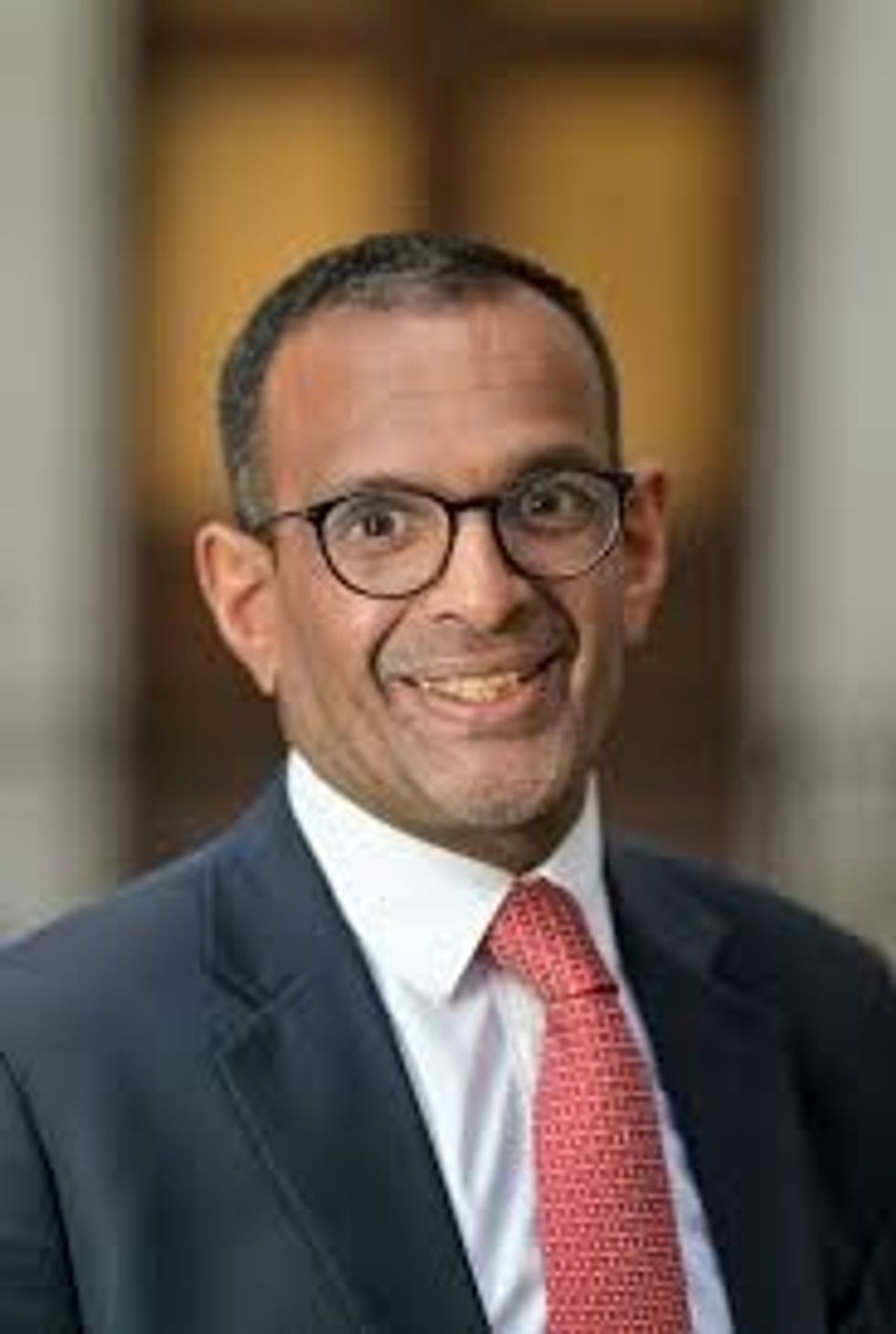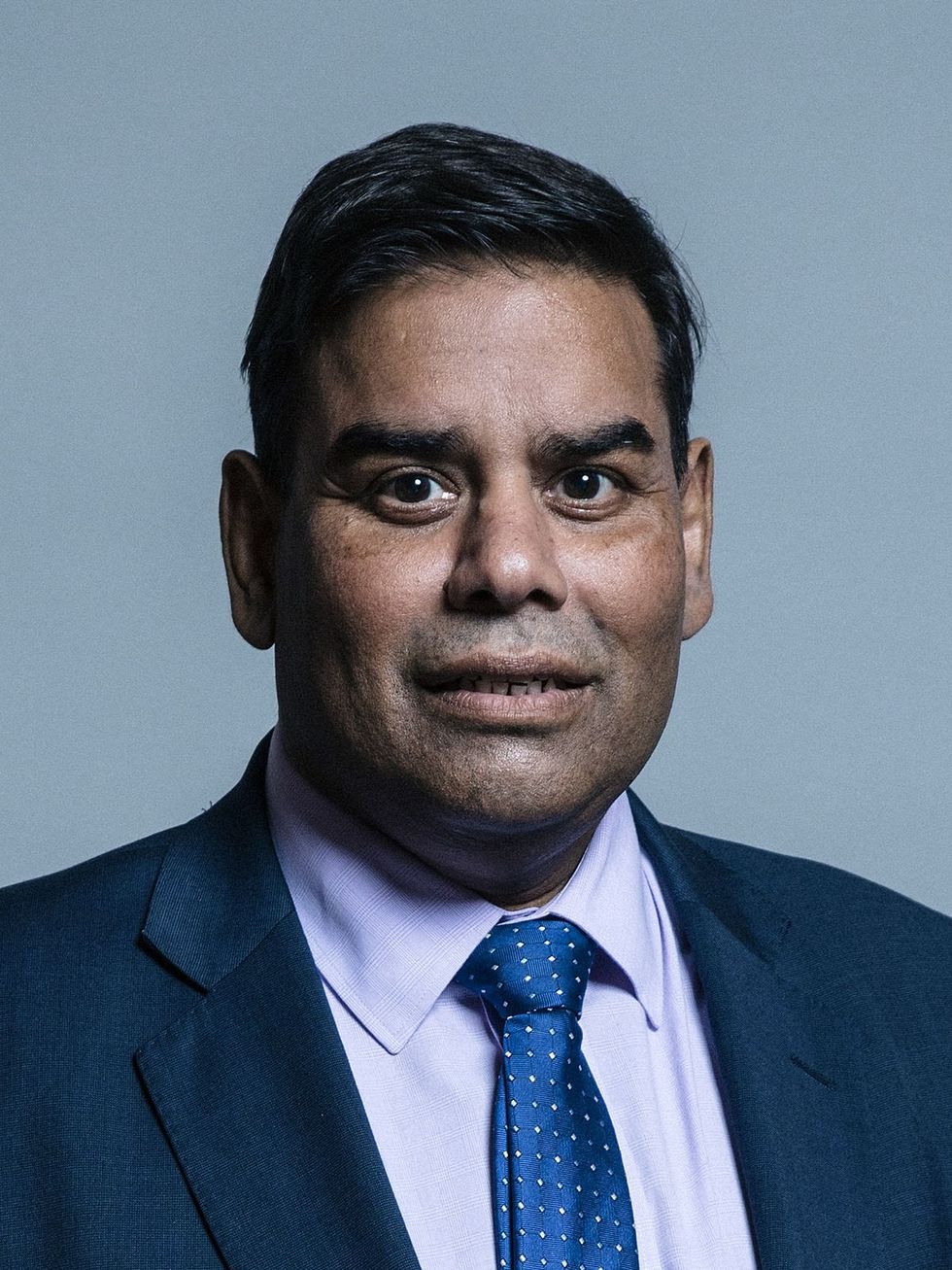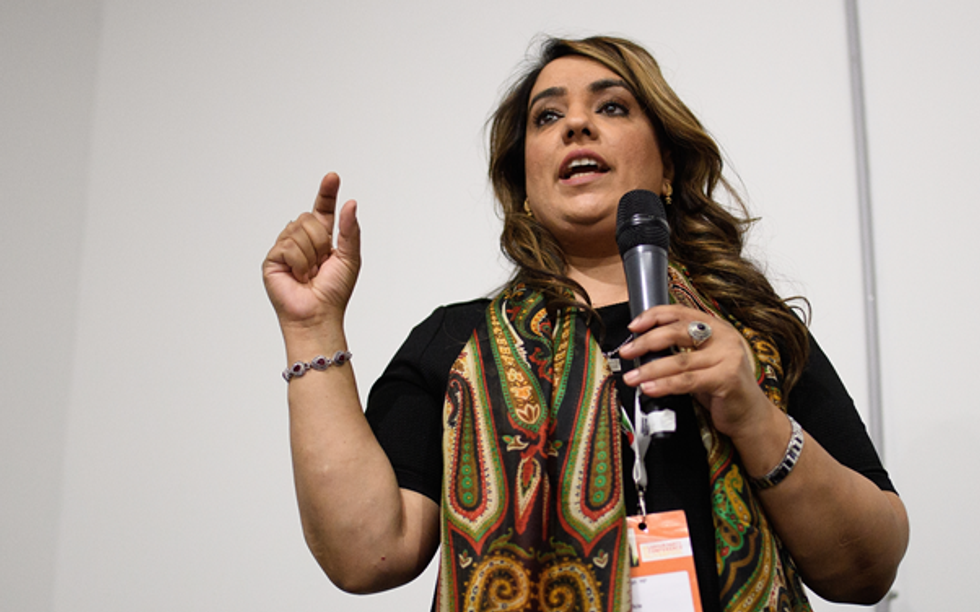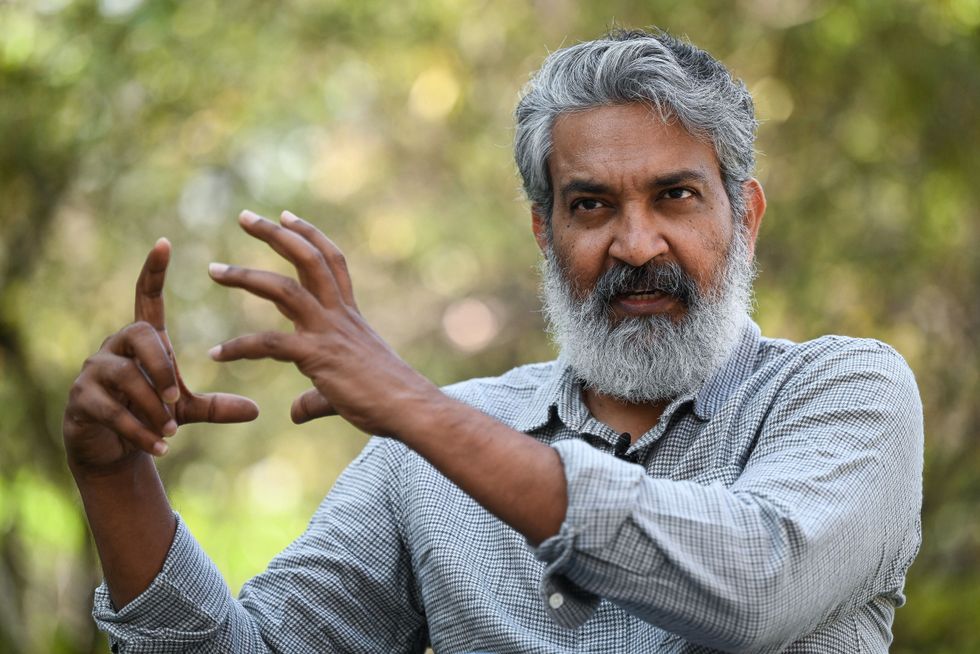POLITICAL PARTIES must go after the south Asian vote in this general election or face a backlash in future polls, parliamentarians and experts have told Eastern Eye.
They are warning candidates in every party that they ignore brown voters “at their peril”.
With Labour currently 20 points ahead in the polls, according to the BBC, experts say Asian constituents are unlikely to influence the outcome in this general election.
But they could sway key seats in the next one, and Asians will remember how political parties may have ignored their views and needs this time around and punish them then.
“One in 10 of the voters in England and Wales is Asian, and so that's important,” said Sunder Katwala, director of British Future, a public policy think tank.
“On the other hand, this doesn't feel like it's an election that's on a knife's edge.
“This feels like an election where there's a clear winner, so no particular group, one way or the other, is probably going to make an enormous difference, unless the result is very different.”
But he warned that political parties still had to engage with south Asian voters.

“Don't assume where people start from or where people are,” he advised.
“Historically we [south Asians] had a strong allegiance in the first generation, probably in the second generation in Britain, to one party on the left, I think that's mostly gone now.
“I think the Labour Party is probably going to get a very high share just because it's in the lead generally.
“But all the parties need to go and introduce themselves to an emerging generation of voters.
“We start with the history and assumptions about these parties that their grandparents or parents might have had.”
Election issues
The vote among young south Asians and first-time voters is another constituency which political parties will need to consider and persuade.
“All the evidence so far suggests that people [south Asians] who are young and born in Britain are almost indistinguishable from the white British people,” explained Maria Sobolewska, professor of political science at the University of Manchester.

Her research area is political integration and representation of ethnic minorities in Britain.
“One of the big reasons why we say young voters don't vote for the Conservative Party anymore is because so many of them go to university.
“They are much more liberal and have much more tolerant values, so we do see that convergence of young votes from all origins.
“However, I do think also that the young people are probably the ones who care a lot more about the Palestine conflict, so I do think that that might be a bit of an unknown quantity right now.
“Again, we have to remember young people are also more likely to stay at home.”
She told Eastern Eye that the issues which affect south Asian voters are the same as those concerning white constituents.
The main factors, she said, were the country’s economy, the cost-of-living crisis and the National Health Service, especially since many south Asians work in the NHS.
Single issues
But in previous elections certain single issues did affect turnout and voting patterns, said the academic.
In 2005 the war in Iraq meant some Muslim voters failed to turn out for Labour, their traditional political party, but by 2010 they did return to the fold.
This time, the war between Israel and Palestine [Hamas] could affect turnout and support.

When former Labour MP, George Galloway, won the Rochdale by-election, under Workers Party of Britain banner, by almost 6,000 votes at the end of February [29], he declared, “Keir Starmer, this is for Gaza.”
In April [30], the MP, who was thrown out of Labour in 2003 for his stance on the Iraq war, unveiled dozens of candidates for his group, including the former England cricketer, Monty Panesar.
In the West Midlands mayoral race, the independent candidate, Akhmed Yakoob, ran on a pro-Palestine ticket.
He took almost 70,000 votes – which some commentators believed would have gone to Labour because it refused to back a permanent ceasefire in the current conflict.
“Muslim voters do have this sense of community and commonality with other Muslims around the world,” Sobolewska said.
“Whether they are Muslims in their countries of origin or countries of their parents’ origin, it is any policy that is perceived as hurting Muslims globally will be something that they will be against.
“I am slightly more hesitant to jump into this conclusion that it will be just like in 2005.
“I think it will depend in some locations whether they will have the kind of Galloway-type candidates who are more viable and maybe shave off a couple of seats from Labour.”
But the professor warned against drawing too many conclusions on the local and mayoral elections.
“You have to remember the kind of turnout levels amongst voters in local elections and the mayoral election, even though it seems more exciting, most people perceive them to be a kind of small fry.
“Especially, in a potential change of government in a general election, you will see probably double the turnout, or nearly double the turnout, so I do actually think that they will not see such huge effects.
“I do think there'll be a few seats that will genuinely be affected, especially if the independent is viable.
“However, I don't think it will be such a huge effect across multiple constituencies.”
International politics
Another factor reported previously in Eastern Eye is the shift in support towards the Tory party by British-Indians.
In 2019, we reported how British-Hindus used WhatsApp to declare that no self-respecting Hindu should vote for Labour.
Eastern Eye also reported how in the Batley and Spen by-election in 2021, the then prime minister, Boris Johnson, and Labour leader, Sir Keir Starmer clashed in the commons over a controversial ballot leaflet branded “divisive” and “anti-India” by Indian diaspora groups in Britain.

The hand-out showed Johnson shaking hands with Indian prime minister, Narendra Modi, at the G7 Summit in 2019 with the message, “Don’t risk a Tory MP who is not on your side”.
“One of the really interesting things about south Asian communities at the moment is the way in which stuff that's happening abroad is impinging on perceptions of a party,” Professor Anand Menon, director of UK in a Changing Europe, told Eastern Eye.
“The drift away from Labour amongst Indian Hindus, you can't date it precisely, but it became more marked after Jeremy Corbyn’s Labour Party passed a resolution about independence for Kashmir.
“What's quite interesting is we're just starting to get the real evidence that positions on foreign policy issues are starting to shape the political attitudes of minorities here.

“In part that's the case because the Conservative Party is coming to seem more attractive than it traditionally did.
“So, 20 or 30 years ago, whatever your social values, whatever your economic class, the south Asian population lent heavily towards Labour because they were seen as more liberal on immigration.
“There was a hint of racist elements within the Conservative Party, and that is changing.
“One of the reasons that has changed is because the Conservative Party has become so Indian, and the second thing, of course, is the Conservative Party has been responsible for an enormous increase in Indian immigration.”
Poor advice
But senior Conservative sources have told Eastern Eye that Rishi Sunak’s advisers have not understood the south Asian diaspora in the UK.
Unlike most south Asian MPs, Sunak has never shied away from talking about how proud he is of his heritage, and that he is a practising Hindu.
But the so-called “Rishi factor” will not be of much use in this election, they said.
“He’s surrounded himself with mainly white advisers who don’t get south Asians,” said one parliamentarian.
“The diaspora are so disappointed with him because they feel his advisers have misled him into thinking that being brown was enough, and he could take the Asian vote for granted.
“By ignoring this important section of voters, by concentrating on the boats and immigration, playing to the far-right in our party, means he can’t cash in on the ‘Asian premium’.
“We know that south Asian voters work disproportionately harder to get their candidates into parliament, and here Rishi’s been told not to worry, he’s got them in the bag.
“His advisers are wrong and have hidden things from him by persuading him to concentrate on issues which only 10 per cent of his party care about.
“Rishi should have left that to Reform, it’s the economy and pound in our pocket, the NHS, getting a dentist, most of us care about.
“We do have some covert racists in the party who are using ethnic minority MPs as cover.”
Another Tory source in Westminster said Sunak’s decision to go to country came as “a massive surprise” to the party.
“We expected an announcement at the party conference in September and an election in November, two years after he became PM,” they said.
“Who knows why he announced.
“The economy’s getting better, we could have had interest rates cuts, Jeremy [Hunt] could’ve cut taxes, Rishi could’ve pointed to asylum seekers going to Rwanda.
“Who knows, is it possible Sir Graham [Brady – chair of the 1922 Committee] told him he had more letters of no confidence?
“Was he worried that the Rwanda policy would be challenged in the courts, so that would be another mess he’d have to deal with?
“Could it be that he expected more boat crossings over the summer, which would show he wasn’t in control of our borders?
“We won’t know till much later, but it doesn’t make sense to go to the country right now.”
Rishi premium?
The idea of a “Rishi bounce” or “Rishi premium” among south Asians may also be inaccurate, they said.
“Among British-Indians, there's definitely a degree of pride that Rishi could be prime minister,” Katwala said.
“It'd be a relatively small group of people who would change their vote on that basis, and with younger voters, it’s particularly likely they will see that as less of a big deal, and they wouldn't see that as a reason to vote for him.
“There might be a bit of defensiveness among some Asians about wanting to see the prime minister been given a fair hearing and treated with respect, after the rain-soaked general election announcement.
“But if people vote for him or not, it will be about them agreeing with him having a plan.”
Asian vote
Labour’s Khalid Mahmood told Eastern Eye that he was not taking the Asian vote for granted, even though in 2019 he was re-elected with a majority of more than 13,000 and Labour’s lead in the polls.
He said he was fighting for every vote for his Birmingham Perry Barr seat, which he won in 2001.

“There's a lot of issues in relation to human rights,” he said.
“In India, first of all, I think [Narendra] Modi, against the Muslim community, and the Kashmir issue still carries on.
“Of course, the issue of the Gaza ceasefire, it was denied, and generally people who believe in the issue of human rights have been interested in this.
“But the Labour Party has gone a long way forward to actually address those issues now.
“And we're quite happy to stand on a record of what we've done and what we’re hoping to do in terms of guidance, particularly on the ICC [International Criminal Court].
“David Lammy [shadow foreign secretary] has taken a stance which shows that Labour is the party that can be trusted on the international issues of human rights and civil liberties.
“The one trick ponies in terms of the independent candidates, we have more to offer people of south Asian origin.
“Issues of education to our children, waiting lists, particularly the National Health Service, where most people are affected by diabetes, by high blood pressure, heart problems.
“All these things particularly are prevalent within the south Asian communities, and we need to deal with that.”
In many parts of England outside London, such as Leicester, Birmingham, Manchester and Bradford, south Asians can make their voices heard.
Tough choices
That is why Naz Shah, the incumbent Labour MP for Bradford West since 2015, whose majority was more than 27,000 at the last general election, said she was not taking anything or anyone for granted.

“I always remind myself that 60 per cent of Muslims live in 40 per cent of the most deprived areas, and those kinds of statistics are really worrying,” she explained.
“So, when you've got places like Bradford West, we need to be in the same league, get the same educational achievements, get them into
the big universities to create that social mobility as the rest of England.”
Shah unseated George Galloway when they battled for the seat which he unexpectedly won in 2012.
Like her Labour colleague, Khalid Mahmood, she made clear that Labour was now supportive of a humanitarian ceasefire in Gaza.
“Any vote anywhere else risks of not making a Labour government and letting the Tories back in,” she warned.
“This is ultimately a two-horse race, and the choice is between the Tory party and the Labour Party, and a vote anywhere else is a vote for the Tory party.”
The director of British Future, Sunder Katwala, argued that south Asians were on the political radar of the mainstream parties.
But winning their vote is more complex than ever before, he said, with different communities having different priorities.
Some voters, he said, were conflicted with domestic policy versus international issues.
“The Conservatives have been getting ever more competitive with Indian voters, and facing a prime minister who's British Indian might or might not have accelerated that,” said Katwala.
“Labour’s doing well in the country as a whole and will hold up a share of the vote among south Asians but will be under more pressure with minority votes and Asian voters in the electorate, generally.
“For the conservatives, this might be just because they're so unpopular with the public, and that might be cutting off the progress they hoped to make in this generation.
“In particular, they were picking up with British Indian voters under David Cameron, under Boris Johnson, they're still hoping to do that.
“They've got this enormous generational divide, and if the Conservatives are just not winning the votes of people until they turn 50, they're going to be less in touch with what could and should have been a good market for them.
“That’s making sure that first time Asian voters don't feel that their vote is taken for granted by their opponents.”















 Priyanka Chopra calls 'SSMB29' her homecoming as she reunites with Indian cinemaGetty Images
Priyanka Chopra calls 'SSMB29' her homecoming as she reunites with Indian cinemaGetty Images  Priyanka Chopra teams up with SS Rajamouli and Mahesh Babu for mega film SSMB29Getty Images
Priyanka Chopra teams up with SS Rajamouli and Mahesh Babu for mega film SSMB29Getty Images  Mahesh Babu’s dramatic new look for SSMB 29 sparks a social media frenzy as fans compare him to Mufasa and a Hollywood action hero Getty Images/ Twitter
Mahesh Babu’s dramatic new look for SSMB 29 sparks a social media frenzy as fans compare him to Mufasa and a Hollywood action hero Getty Images/ Twitter  SS Rajamouli recreates Varanasi at Ramoji Film City for a key action sequence in SSMB29 Getty Images
SS Rajamouli recreates Varanasi at Ramoji Film City for a key action sequence in SSMB29 Getty Images 


 Aamir Khan sports a rugged look with pipe and vest in Coolie cameoInstagram/
Aamir Khan sports a rugged look with pipe and vest in Coolie cameoInstagram/